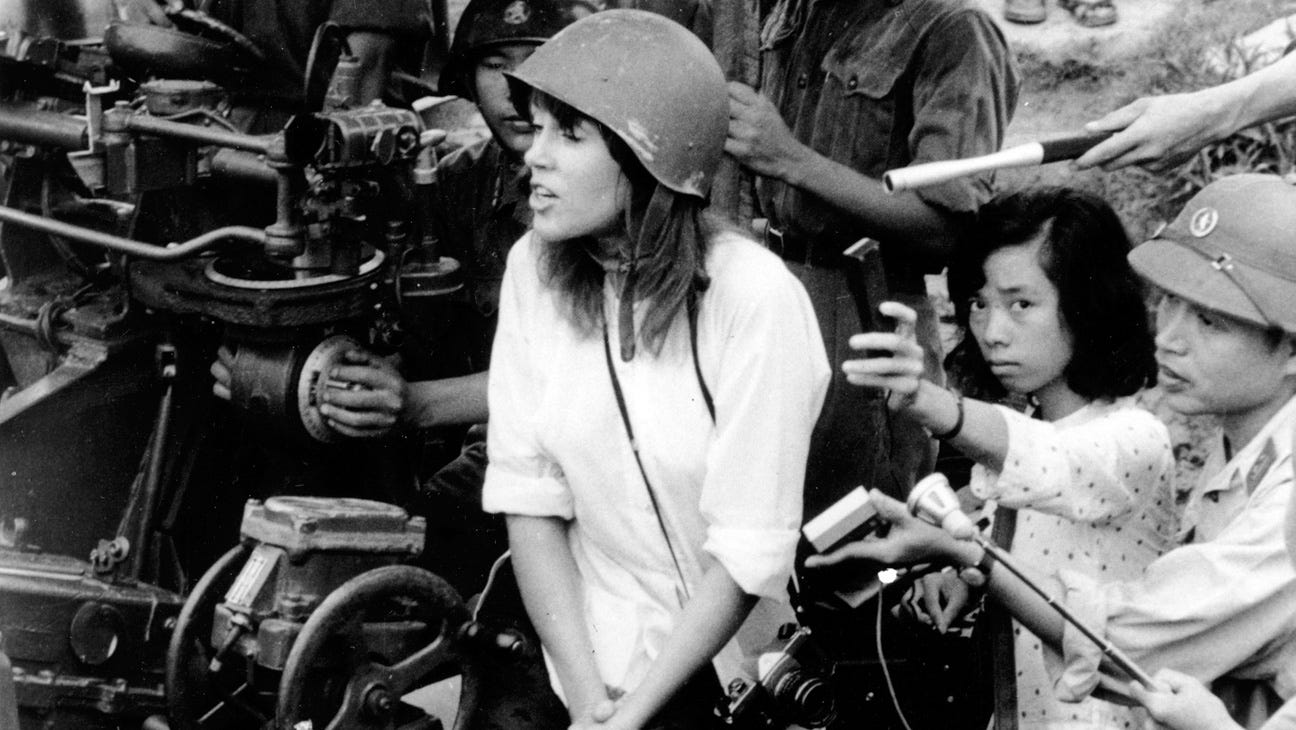Jane Fonda And The Vietnam War
Jane Fonda, an Academy Award-winning actress, became one of the most controversial figures of the 1960s and 1970s due to her vehement opposition to the Vietnam War.
Her activism during this period left a lasting impact on American culture and politics, and it remains a significant aspect of her legacy.
Early Activism
Jane Fonda's transformation into a political activist began in the late 1960s. Initially famous for her acting career, Fonda became increasingly involved in various social and political causes, including the civil rights movement and opposition to the Vietnam War. Her engagement was part of a broader wave of celebrity activism that sought to leverage public attention for political causes.
Visits to North Vietnam
Fonda's anti-war activism reached its zenith in July 1972, when she visited Hanoi, the capital of North Vietnam, at the invitation of the Vietnamese peace delegation. During her two-week stay, she made radio broadcasts in which she criticized American military policy and its impact on both the Vietnamese and American people. She visited various places, including dike systems claimed to have been bombed by U.S. forces, hospitals treating war victims, and American POWs. Fonda argued that the U.S. government was engaged in a campaign of disinformation about the war and that her visit aimed to reveal the truth about the situation in Vietnam.
"Hanoi Jane"
The most controversial moment of Fonda's visit was a photograph taken of her seated on an anti-aircraft gun in Hanoi, an image that earned her the nickname "Hanoi Jane." The photo sparked outrage among many Americans, particularly veterans, who saw it as an act of betrayal. Fonda has since expressed regret about the photo, calling it a "huge, huge mistake" and explaining that she had been manipulated into sitting on the gun.
Impact and Controversy
Fonda's actions in North Vietnam had a profound and polarizing impact in the United States. Supporters praised her courage in speaking out against the war, while detractors accused her of treason and aiding the enemy. The backlash was intense and lasting, with Fonda facing criticism and hostility for decades afterwards.
Ongoing Activism
Despite the controversy, Fonda remained committed to her anti-war stance throughout the conflict. Upon her return to the United States, she continued to speak out against the Vietnam War, participating in rallies, protests, and speaking engagements across the country. She also engaged in fundraising efforts for medical supplies and relief efforts for the Vietnamese people.
Legacy
Jane Fonda's activism during the Vietnam War is a complex legacy of courage, controversy, and change. Her visit to North Vietnam remains one of the most controversial acts of celebrity activism in American history. However, it also reflects the deeply divided nature of American society during the Vietnam War era. Fonda's subsequent apologies for some of her actions, particularly the anti-aircraft gun photo, and her continued activism in various social and political causes, have somewhat softened public perceptions over time.
Fonda's anti-war efforts contributed to the broader movement that ultimately helped shift public opinion against the Vietnam War. Her career and activism highlight the potential and pitfalls of celebrity involvement in political issues, a phenomenon that remains relevant today.
